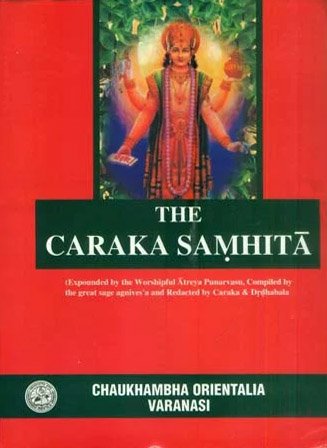History of Indian Medicine (and Ayurveda)
by Shree Gulabkunverba Ayurvedic Society | 1949 | 162,724 words | ISBN-13: 9788176370813
The History of Indian medicine and Ayurveda (i.e., the science of life) represents the introductory pages of the Charaka Samhita composed of six large sections dealing with every facet of Medicine in ancient India in a Socio-Historical context. Caraka is regarded as one of the pioneers in the field of scientific healthcare. As an important final a...
Chapter 8 - Qualities of the Teacher
The texts of Ayurveda also lay down what the qualities of a real teacher should be They desired that the teacher should be of high exceptional abilities both moral and intellectual, and should enable the pupils to attain a knowledge that would give them fulfilment of life. With this high purpose in view, the teacher was required to be an ideal to the pupils and an undenying source of knowledge and inspiration to them Hence his qualities were placed very high and only within the possibility of the best men of the race. He was also required to know the whole science, and even allied sciences and arts thoroughly and exhaustively Not only that, but he must be able to supplement the texts by his own comments drawn systematically from his own imagination and logic. He must possess the necessary powers of expression and exposition and clarity so as to enable the three grades of students namely, highly intelligent, the moderately intelligent as well as the lowest grade of students to understand. The teacher was also required to be able either to expand or to abridge the exposition of a subject as the occasion demanded
More than all these, the teacher must be able to bring to his high task an undistracted mind and make this his sole task of life and devote all his energies to it. He must have unbounded affection for his disciples and should devote a personal and individual care and thought over every pupil and be his source of inspiration and guidance through life. This spirit is gradually on the wane under the present condition of educational’ methods and it is most essential that we try to revive this spirit of intimate relation between the teacher and the taught.
Lastly, the teacher may not withhold from his pupils any aspect or recondite doctrine regarding the science that he undertook to teach at the time when the student takes the oath of initiation To make this a moral and spiritual binding, the teacher had to take vow, on the occasion of taking oath of initiation by the student
[Suśrutasaṃhitā Sūtrasthāna 2.7]
“When you on your part keep your vows and if I do not respond fully and impart all my knowledge I shall become a sinner and my knowledge shall go fruitless”
Such a vow is worth introducing into the present system of education.
The Smritikaustubha (Smṛtikaustubha) narrates how a teacher was condemned to be a mango tree in his next existence for his failure to impart Vedic knowledge.
[...]
There is an obvious subtle humour in the retribution imposed upon tho teacher who would not give what he possessed to others; as a mango tree he would have to give all fruits to others and retain none for himself.
We shall here cite the main qualities required of the teacher as described in Caraka, Sushruta, Vagbhata and Kashyapa.
Paryavadātaśruta—Possessed of unblemished knowledge of the science.
Paridṛṣṭakarman—Adept in practice.
Dakṣa—Possessed of skill.
Dakṣiṇa—Compliant.
Śuci—Possessed of the purity of mind and body.
Jitahasta—Possessed of a practised hand.
Upakaraṇavān—Possessed of full equipment.
Sarvendriya-upapanna—Of all the senses intact.
Prakṛtijña—Possessed of full knowledge of constitution.
Pratipattijña—Prompt in decision.
Upaskṛta-vidya—Ripe in wisdom.
Anahaṅkṛta—Free from arrogance.
Anasūyaka—Free from carping.
Akopana—Free from irritability.
Kleśakṣama—Possessed of endurance.
Śiṣyavatsala—Possessed of love for the pupils.
Adhyāpaka—Devoted to imparting knowledge.
Jñānasamartha—Capable of deep insight.
Dharma-jñāna-vijñāna-uhāpoha-pratipātti-kuśala—Skilled in righteousness, knowledge, science, imagination and practice.
Guṇasaṃpanna—Possessed of good qualities.
Saumyadarśana—Endowed with pleasant appearance.
Śiṣya-hita-darśī—Given to seeing to the welfare of the pupils.
Upadeṣṭā—Given to guidance.
Bhiṣakśāstra-vyākhyāna-kuśala—Skilled in the exposition and interpretation of the science of medicine.
Tīrthāga[?Tīrthāgama?]-jñāna-vijñana—Possessing knowledge obtained from the personal contact with a preceptor.
Kalya—Possessed of good health.
Anavyakarman?—Dedicated solely to the task.
Avyāvṛtta—Of undistracted mind.
